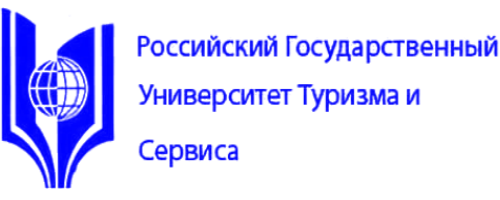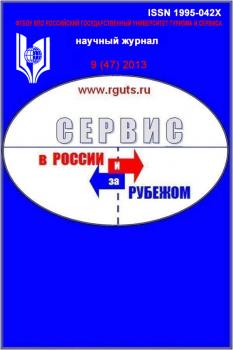The author suggests that national mentality as it was seen by out-standing Russian thinkers F. M. Dostoyevsky, V. S. Solovyov, N. A. Ber-dyaev, G. P. Fedotov, N. S. Trubetskoy, and others, significantly effects on service development in Russia. When analyzing its features, its strengths and weaknesses in creating comfortable habitat environment in Russia, improving the communication climate accompanying the high level of rendering services, the author believes that it is important to outline ways to correct existing national types of reactions. It is necessary to create the comprehensive program aimed at breakthrough high-quality change of a human capital in the service sector. The service personnel are people contacting to the country population day by day, involuntarily being translators of certain emotions, ideas and values. Service staff through own behavior should demonstrate positive and, in the same time, close to the national ideal forms of interpersonal communication motivating citizens of Russia to take them as an example. Thus, the culture of civic consciousness would increase in our country. The article compares the opinions of the Russian thinkers of the end of XIX – the beginning of the XX century with characteristics of modern domestic service sector and makes the conclusion that they are obviously correlated. The ideas of F. M. Dostoyevsky who appeared the prophet of many tragic events, happened in the 20th century in Russia, are most indicative on this point. The author reveals features of national mentality and related to it problems of Russian service industry, and offers some solutions.
national mentality, traditional Russian culture, national types of reactions, idea of service, service indus-try, service quality, emotional intelligence
1. Aleshina A., Shabanov S. Emocional'nyy intellekt. M.: Mann-Ivanov-Ferber, 2014.
2. Andreeva I.N. Predposylki razvitiya emocional'nogo intellekta // Voprosy psihologii. 2007. №5. S. 57-65.
3. Berezhnoy N.M. Chelovek i ego potrebnosti. M.: Forum, 2000.
4. Grekova V.E. Predstavleniya o nacional'nom haraktere // Vserossiyskiy zhurnal nauchnyh publikaciy. 2011. №4(5).
5. Delaroff A. «Ya tut ni pri chem»: Kak spravit'sya s tradiciyami russkogo nacional'nogo servisa // Slon, razdel «Biznes buduschego». URL: https://republic.ru/biz/ 1099983/ (Data obrascheniya: 01.02.2017).
6. Ershov P.M. Potrebnosti cheloveka. M.: Mysl', 1990. 368 s.
7. Kas'yanova K. O russkom nacional'nom haraktere. M.-Ekaterinburg: Akademicheskiy proekt, 2003. S. 8, 35.
8. Kortunov S.V. Nacional'naya identichnost'. Postizhenie smysla. M.: Aspektpress, 2009. 586 s.
9. Kotler F. Osnovy marketinga. Kratkiy kurs. M.: Dialektika, Vil'yams, 2016.
10. Loyko O.T. Servisnaya deyatel'nost'. M.: Akademiya, 2008. 304 s.
11. Osipov P. Nacional'nyy mentalitet. O russkoy skromnosti, zhar-pticah i pelenanii detey // Upravlenie sbytom. 2009. №12.
12. Chernousova N.Yu. Osnovnye napravleniya vnedreniya innovacionnyh tehnologiy v sfere gostepriimstva // Servis v Rossii i za rubezhom. 2012. №2(29). C. 32-39.
13. Chernysheva T.L. Voploschenie avtorskoy pozicii v proizvedenii F.M. Dostoevskogo «Brat'ya Karamazovy»: Avtoref. diss. … kand. filol. nauk. Krasnoyarsk, 1999.
14. Chernysheva T.L. Kategorial'nyy analiz kul'tury i ee nacional'nogo i obschechelovecheskogo aspektov // Servis plus. 2016. T.10, №1. Rp. 111-121.
15. Chernysheva T.L. Podhody k sozdaniyu programmy professional'noy orientacii v sfere servisa // Vestnik Associacii vuzov turizma i servisa. 2017. T.11. №1. C. 21-33.
16. Fedulin A.A., Anan'eva T.N. Sovershenstvovanie podgotovki kadrov vysshego professional'nogo obrazovaniya dlya sfery servisa s uchetom potrebnostey rynka truda: monografiya. M.: RGUTIS, 2009. 188 s.
17. Yurevich A.V. Nravstvennoe sostoyanie sovremennogo rossiyskogo obschestva: empiricheskie ocenki // Voprosy psihologii. 2016. №4.
18. Bardzil P., Slaski M. Emotional intelligence: Fundamental competencies for enhanced service provision // Managing Service Quality. 2003. Vol. 13(2). Pp. 97-104.
19. Baum T. Skills and training for the hospitality sector: A review of issues // Journal of vocational Education and Training. 2002. Vol. 54(3). Pp. 8-13.
20. Baum T. Reflections on the Nature of Skills in the Experience Economy: Shallenging Traditional Skills Models in Hospitality // Journal of Hospitality and Tourism Management. 2006. Vol. 13(2). Pp. 124-135.
21. Mayer J., Salovey P. What is emotional intelligence. In “Emotional development and Emotional Intelligence”. New York: Basic Books, 1997. Pp. 241-266.





